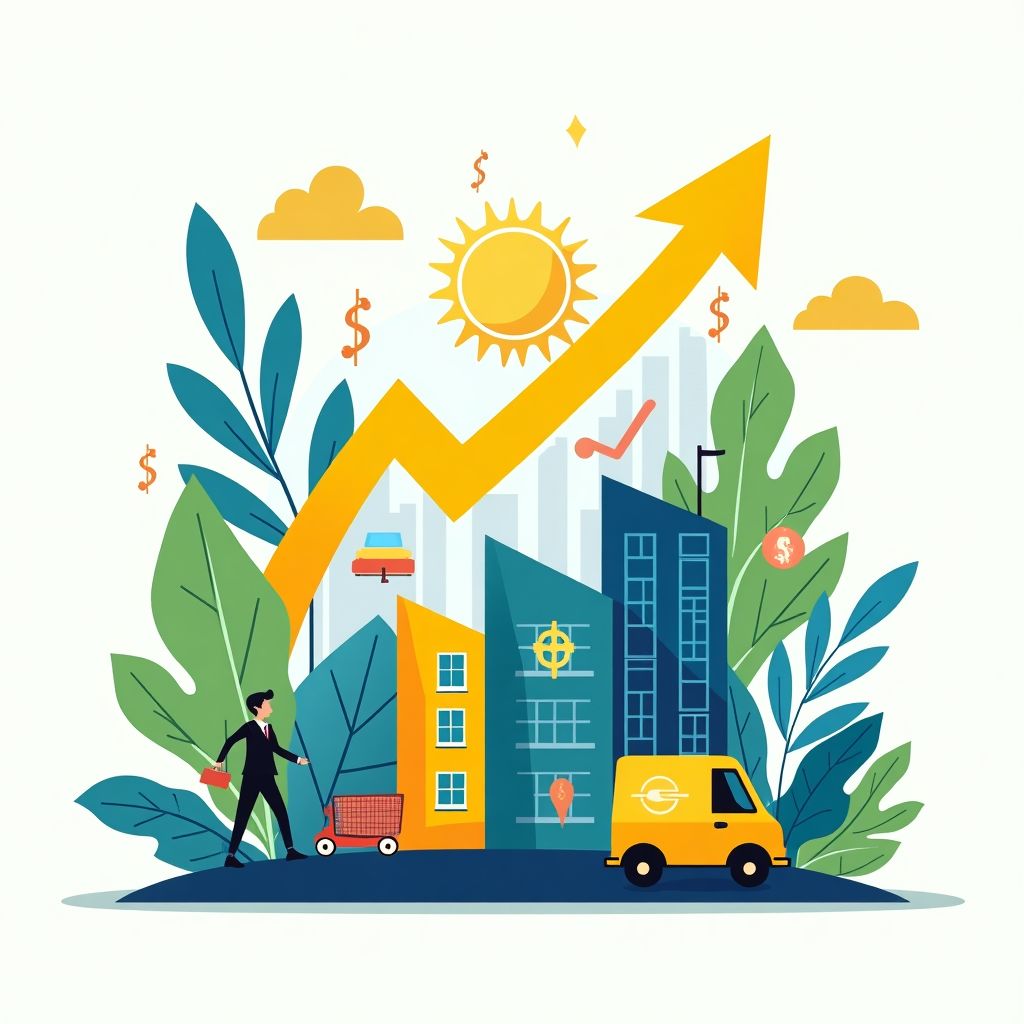The only thing worse than being blind is having sight but no vision. – Helen Keller. This saying encapsulates the need for foresight and planning, especially when tackling the complexities of our economic future. While many grapple with fears of impending financial doom, clarity is gained through understanding and thoughtful preparation. So, is the next recession lurking around the corner, or are we merely speculating from our economic blindsides?
In an engaging discussion from Peter Zeihan on Geopolitics, economic insights are provided that challenge widely held beliefs. Zeihan eloquently dismantles the anxiety surrounding an imminent recession, highlighting instead the current robust economic resilience. As we delve deeper, it becomes clear that panic may be premature and misplaced. But should we really be resting easy?
The Consumer's Role: Stagnation or Salvation?
To forecast the future of the economy, Zeihan highlights a crucial piece of the puzzle: consumption. In the United States, approximately 70% of the economy hinges on consumer activities. As Zeihan points out, it's the spending of individuals—particularly in the age group of 20 to 45—that buoys the nation's economic engine. Who's responsible for this charge? Meet the Millennials, society's perennial torchbearers of consumption.
While there's a natural concern that the Millennials' purchasing strength will wane as they hit their 50s, fear not. This demographic delay translates into a steady economic pulse projected to persist until at least 2032. What drives this? Well, let's just say Millennials have mastered the art of delayed gratification. From home purchases to child-rearing, they're doing it all—just a little later than their predecessors.
Industrial Boom or Bust?
Breaking Bread with Big Industry: Have we bitten off more than we can chew? Peter Zeihan seems to think not. The nation is bearing witness to an explosive industrial surge, driven by a strategic pivot away from Chinese reliance. Zeihan illuminates the need to double the U.S.'s industrial capacity—a Herculean task, no doubt, but one that promises an economic boost.
Was it daunting? Absolutely. But Zeihan reassures us that we're not facing a recession in the next five to ten years. Instead, we're fueling a massive expansion spree. Unless we falter in this quest, the fruits of our labor may stave off economic decline.
Financial Foresight: No Bubbles Here
The reckless gambles that spawned the dot-com and subprime mortgage busts are conspicuously absent from today's scene. With capital costs soaring, driven by baby boomers shifting their assets to safer havens, financial prudence is the order of the day. Zeihan dispels fears of a bubble-induced meltdown, citing the healthy credit conditions that prevail.
Even with a slight uptick in loan delinquency rates, historical context shows the numbers still well below postwar norms. With employment robust and many homeowners comfortably locked into mortgages with rates as low as 2%, the financial landscape appears solid. Rest assured, there's no imminent bubble ready to burst.
Possible Pitfalls on the Horizon
So, if an immediate downturn isn't on the agenda, what might the future hold? Zeihan offers two scenarios: a downturn when Millennials ease off the consumption throttle in 2032, or industrial missteps that require correction. Both events could manifest as recession-like symptoms, sans the actual designation.
Will Generation Z's modest numbers fail to match the Millennials' spending spree? That's one angle. Or, will burgeoning industries misalign with market needs, prompting necessary but painful recalibrations? The answer, as always, lies in preparation and adaptive strategies.
The Chinese Conundrum: Leveraging an Opportunity
The urgency to bolster American industrial capabilities comes as China faces its own demographic decline, a point Zeihan underscores. Should complacency win out, and we fail to capitalize on current opportunities, the consequence could be an inflationary storm that makes an economic slowdown feel all too real—an ironic growth story fraught with inflation outpacing productivity.
However, optimism remains. By utilizing China's industrial might as a stepping stone—a clever exploitation of the geopolitical stage—the U.S. can sidestep future crises. A decisively proactive stance will keep economic stagnation at bay.
Conclusion: A Call to Action
Armed with foresight, the path to economic resilience is clear. As we march toward an uncertain future, preparation and adaptability are imperative. Will the next recession catch us off-guard, or can we steer clear of financial folly? The answer lies in proactive measures and thoughtful engagement.
Are you ready to embrace this economic narrative? What's your vision for the next decade? Join us in this conversation, share your thoughts below, and become part of the iNthacity community, the “Shining City on the Web.”
Wait! There's more...check out our fascinating short story that continues the journey: A Message in Darkness
Disclaimer: This article may contain affiliate links. If you click on these links and make a purchase, we may receive a commission at no additional cost to you. Our recommendations and reviews are always independent and objective, aiming to provide you with the best information and resources.
Get Exclusive Stories, Photos, Art & Offers - Subscribe Today!

























1 comment